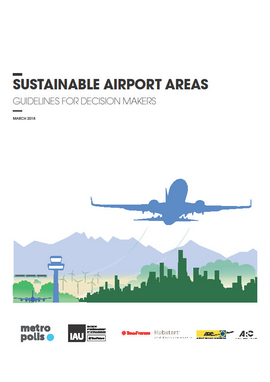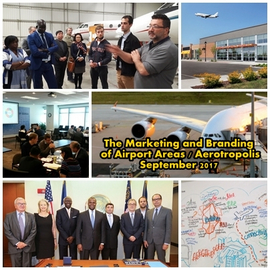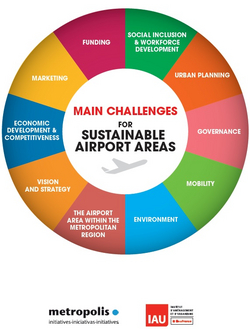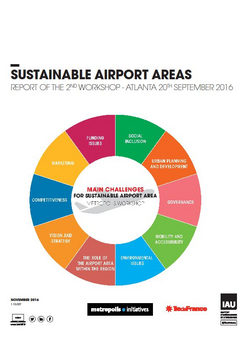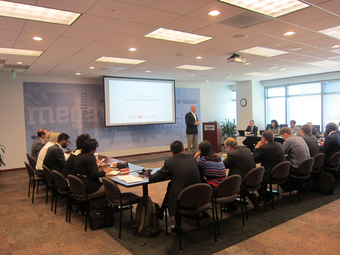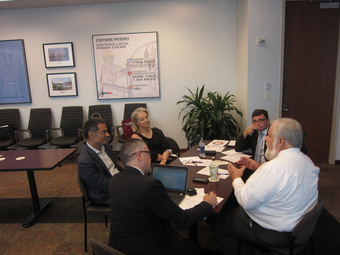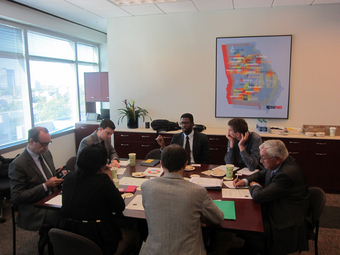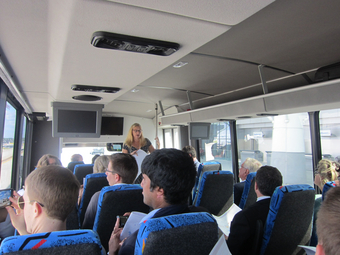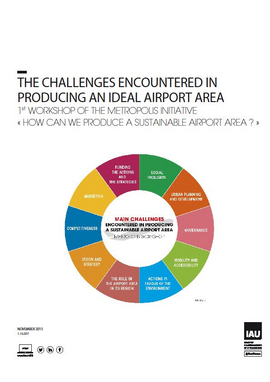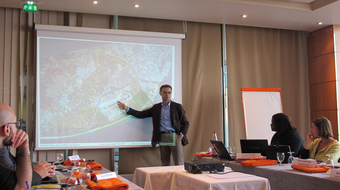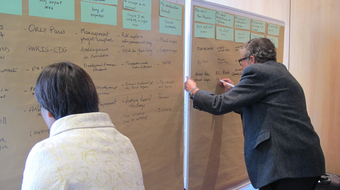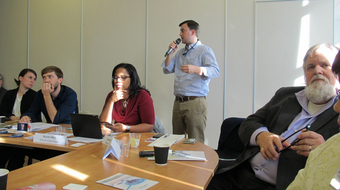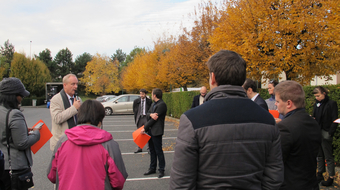Sustainable Airport Areas
International airports and their surrounding areas are of increasingly strategic importance for the development of the metropolitan regions they serve. They are also evolving and becoming distinctive economic and urban places in their own right.
At the same time, airport activity has a significant impact on the surrounding environment and generates negative externalities such as air pollution, noise, traffic congestion or agricultural land consumption.
Airport areas also address specific challenges related to governance, socio-economic inclusion, transport and mobility, urban planning, marketing, etc.
In the face of all these challenges, more and more airport authorities and local decision makers feel the need to acquire and share best practices that may help them develop their airport areas in a more sustainable way.
The Metropolis initiative on “Sustainable Airport Areas" was launched in 2015 to answer those needs. As the project leader of the initiative, L'Institut Paris Region was in charge of organizing three international workshops aimed at identifying and sharing recommendations and good practices on the key sustainability issues facing the planning, development and management of international airport areas.
The final outcome of this Metropolis Initiative is the publication of the present report. This report is organized in eight thematic chapters. Each chapter deals with one of the major challenges related to sustainable airport areas and proposes recommendations and best practices based on the collective work made by the participants in the three workshops, as well as on further research conducted by the project team members of L'Institut Paris Region. This report purports to provide practical guidance and recommendations to planners, developers and public decision makers committed to improving the sustainability of airport areas across the globe.
Airport Areas / Aerotropolis have become key drivers of economic development because they offer a high concentration of amenities very useful for businesses engaged in the Global Economy. The DNA of the Airport Area is the connectivity created by an unique combination of infrastructures and Public / Private Services. Because of these assets, Airport Authorities, local Authorities, Business companies, etc. market all together these areas to intensify the local economic development and create jobs. Based on the principles of marketing and Best Practices, this study gives you the keys to succeed in marketing and branding of an Airport Area / Aerotropolis. This study is a contribution to the report of the Metropolis Initiative 2015 – 2017 on Sustainable Airport Areas.
3RD SUSTAINABLE AIRPORT AREAS WORKSHOP
The third workshop took place on 4 April 2017 in Paris. It was organized jointly with the Airport Regions Conference (ARC), which held its annual congress in Paris from 4 to 6 April 2017. More than 35 participants coming from various metropolises and airport areas (Barcelona, Berlin, Brussels, Budapest, Daegu, Dakar, Dublin, Goteborg, Oslo, Paris-CDG, Paris-Orly, Vantaa and Warsaw) took part in the workshop as well as international experts and consultants from various organizations (Arcandia, Envisa, Total, UAF). The third workshop focused on the following challenges: environment, mobility and accessibility, economic development and urban planning. A business tour was organized jointly with the ARC in the afternoon. The participants visited several training centers dedicated to various airport-related activities such as aeronautics, tourism and hospitality, customs, ground handling or logistics.
2ND SUSTAINABLE AIRPORT AREAS WORKSHOP
Atlanta: Experts identify challenges and good practices developed by international airport areas
On September 20, 2016, the Sustainable Airport Area initiative held its second workshop in Atlanta, USA – almost one year after the October 2015 Paris workshop. Representatives from six international airports participated in the workshop: Atlanta, Paris-CDG, Beijing, Dakar, Vantaa, Barcelona, as well as international experts, consultants and scholars from Paris, Atlanta, Hong-Kong and Vancouver. In total, twenty-five high-level professionals attended the workshop.
The main objective of the 2016 workshop was to identify and share good practices related to these 10 key challenges. Participants were invited to split up in thematic work groups, each tackling one of the key challenges. This work method allowed for the collective identification of a number of good practices developed by international airport areas on various fields such as mobility and accessibility, urban planning and development, governance and competitiveness.
The workshop program also included a visit to the Georgia Resource Center - a world-renowned resource center run by Georgia Power and dedicated to attracting and expanding businesses in the State of Georgia.
On September 22, the participants also took part in a business tour in the Atlanta Airport Area organized by the Atlanta Regional Commission (ARC). The business tour, held jointly with the Hubstart International Seminar, included visits to some of the major economic development sites and projects in the Airport Area such as the new Porsche Headquarters, the redevelopment of the former Fort McPherson military base, the City of College Park and the new terminals currently under construction.
1ST SUSTAINABLE AIRPORT AREAS WORKSHOP
Paris: What are the main challenges facing sustainable airport areas?
On 26 and 27 October, the Parisian airports of Charles-de-Gaulle and Orly hosted the first workshop of the “How to create a sustainable airport area” initiative, dealing with the main challenges these facilities are facing. Eight airports participated in the workshop: CDG-Paris, Orly-Paris, Barcelona, Atlanta, Shanghai, Incheon, Beijing and Guarulhos. In total, more than thirty people participated in the workshop, representing not only airports but also academia, research and consulting.
The workshop featured morning sessions with presentations from the participating airport areas and technical visits to Orly and Charles-de-Gaulle in the afternoons. The work sessions concluded on Tuesday 27 with an open debate based on a mind-map created from the ideas compiled over the two days of work.
This exercise helped visualize the main challenges, many of them shared, currently facing sustainable airport areas.
During the technical visits to Orly and CDG, participants got a first-hand look at how these airport areas are set up, as well as some of the main initiatives underway in order to remain a benchmark in sustainability (this initiative deals with the concept of sustainability in a broad sense, encompassing economic, environmental and social issues). In this regard, participants visited the Recyclerie Les Portes de l’Essone, a place to collect, repair and re-sell objects that employs and trains residents from towns near the Orly airport. In the CDG area, participants attended a presentation on the Villepinte geothermal district heating network, which is going to serve several thousands of households.
This page is linked to the following category :
Mobility
